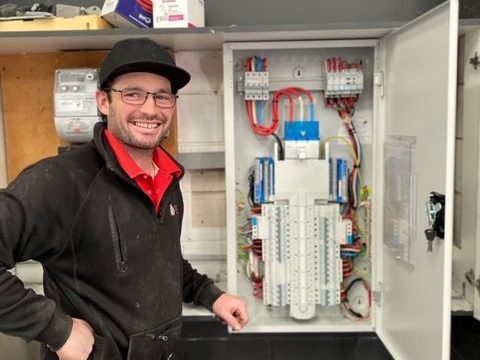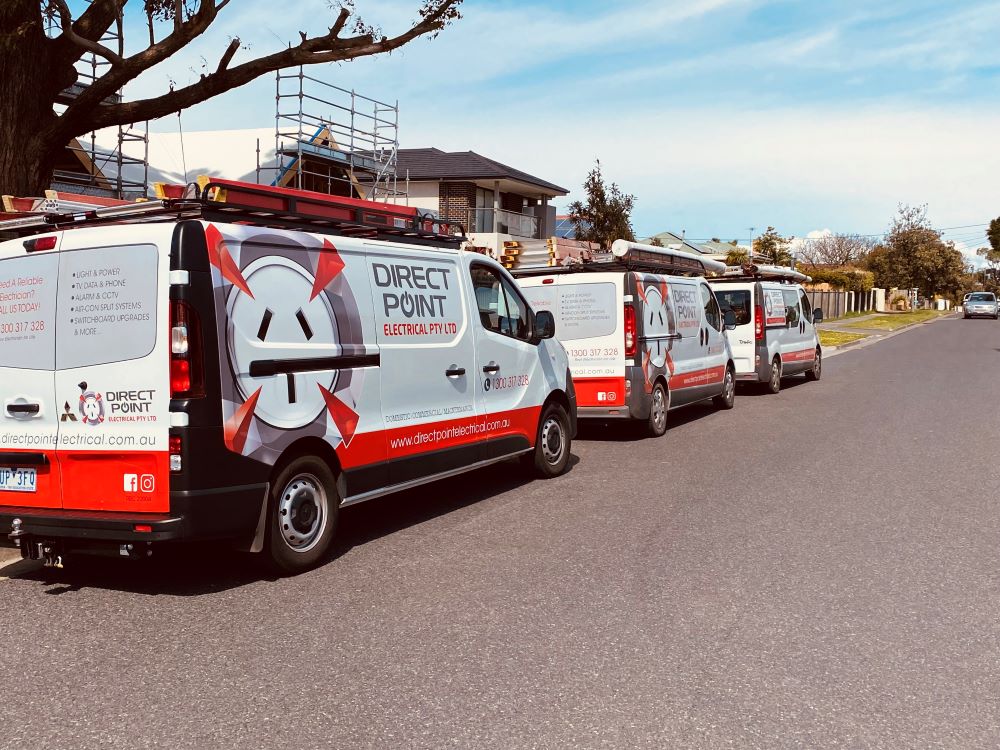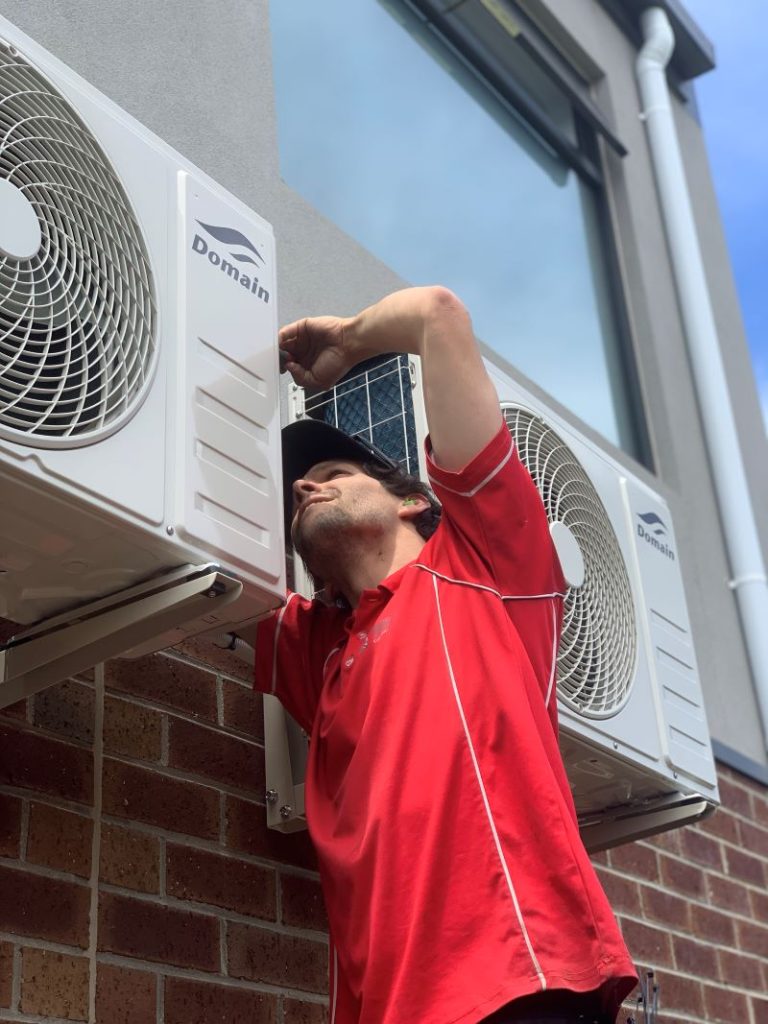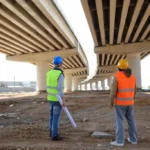Understanding the Importance of an Electrical Safety Inspection
An electrical safety inspection is a detailed evaluation of your home’s wiring, switchboard, outlets, and safety devices. This critical assessment ensures adherence to the Australian Standard AS/NZS 3000 and pinpoints potential hazards such as overloaded circuits, faulty wiring, or absent safety switches. Conducted by licensed electricians, these inspections are essential in averting risks of electric shock, devastating fires, and damage to your appliances.

Essential Electrical Safety Checks for Your Home
Many homeowners mistakenly believe that their home’s electrical system is secure until a problem arises. But how can you ascertain if your wiring is deteriorating behind the walls? For instance, is your switchboard functioning adequately, or is it overheating? Regular electrical safety inspections are not merely a precaution; they are a vital necessity, particularly in older suburbs such as Narre Warren and Rowville. With most homes in these areas exceeding 40 years in age, the original switchboards are often outdated and require replacement. Whether you are in the process of buying, selling, renovating, or simply haven’t conducted an inspection in years, understanding how an inspection operates and its significance is crucial.
Comprehensive Overview of an Electrical Safety Inspection
An electrical safety inspection involves a meticulous review of your property's complete electrical infrastructure. A qualified electrician will assess the condition, compliance, and functionality of:
- Wiring and cable insulation
- Power outlets and light switches
- Switchboard and circuit breakers
- Residual Current Devices (RCDs) or safety switches
- Earthing and bonding systems
- Appliance connections and load capacity
- Smoke alarm wiring (if hardwired)
- External weatherproofing of outdoor circuits
At Direct Point Electrical, we strictly adhere to all relevant legislation and guidelines, including the AS/NZS 3000:2018 Wiring Rules, Energy Safe Victoria guidelines, and Victorian Rental Tenancy Regulations.
The Vital Need for Inspections in Older Residences
Houses constructed before 1990 frequently utilised outdated wiring types, such as rubber-insulated or aluminium cabling. These materials can deteriorate over time, particularly in regions exposed to heat or moisture. If your home hasn't undergone rewiring or an inspection in over 20 years, scheduling a safety inspection becomes imperative. We regularly encounter significant issues, including:
- Non-earthed outlets
- Oversized fuses
- Lack of smoke alarms
- Circuits without RCDs
- Undersized cabling for modern electrical loads
These issues represent serious hazards that can jeopardise your home and safety.
Optimal Timing for Scheduling an Electrical Inspection
- Before purchasing or selling a property: This is often mandated by lenders and is a recommended step for buyer due diligence.
- Prior to renovations or major appliance upgrades: Ensuring safety before modifications is critical.
- After experiencing flood, storm, or fire damage: Prompt inspections help identify any new hazards.
- If your home is over 25 years old: Regular checks are crucial for older properties.
- As a landlord, during the preparation of a rental property: Compliance and safety checks are essential.
Since March 2021, landlords in Victoria are mandated to conduct electrical safety checks every 2 years, in line with the Residential Tenancies Regulations 2021.
For further details, visit: Victorian Government Consumer Affairs.
Detailed Insights into What Occurs During an Electrical Inspection
Our licensed electricians conduct a thorough walkthrough and evaluation of all accessible electrical systems, which includes:
- Testing every socket and switch for faults
- Checking polarity and voltage across all points
- Verifying the presence and effectiveness of RCDs
- Inspecting the switchboard layout, protection, and labelling
- Utilising thermal imaging to detect overheating components (when necessary)
- Conducting earth loop impedance testing
- Documenting any illegal or DIY wiring
Once the inspection concludes, you will receive a comprehensive written report detailing:
- Existing hazards
- Compliance status
- Urgent repair requirements (if applicable)
- Recommended upgrades
- Options for enhancing safety
Additionally, we provide a Certificate of Electrical Safety (COES) for any rectification work performed.
Steps to Take If Your Home Fails the Inspection
There’s no need to panic. Many homes we inspect only necessitate minor enhancements, such as the addition of an RCD, replacing a few degraded outlets, or addressing an overloaded circuit. If we identify significant concerns (for instance, non-earthed wiring or a non-compliant switchboard), we will prioritise safety risks and supply you with a clear, fixed quote. For more information on how we manage updates, please check our electrical services page.
Understanding the Timeframe for an Electrical Safety Inspection
The duration of most inspections ranges from 1.5 to 2.5 hours, depending on the size and accessibility of the property. If you reside in a double-storey or split-level home, or have extensive outdoor power systems, the duration may vary slightly to accommodate a thorough assessment.
Financial Benefits of Scheduling an Electrical Inspection
Absolutely. Unidentified issues such as leaking current, loose neutral connections, or improperly loaded circuits can lead to significant consequences, including:
- Increased power bills
- Reduced lifespan of your appliances
- Risk of expensive repairs if left unnoticed
Moreover, identifying faults early safeguards you from the potential financial burdens and legal repercussions associated with an electrical fire or injury claims, particularly if you are a landlord.
Frequently Asked Questions About Electrical Safety Inspections
What distinguishes a safety inspection from an energy audit?
A safety inspection focuses on identifying hazards and ensuring compliance with safety codes, while an energy audit evaluates efficiency and provides recommendations for reducing energy consumption.
Should I turn off the power during the inspection?
Not always necessary. Some tests may require brief disconnections, but most of the process can be conducted while your power remains on.
Am I liable for fines if I neglect safety checks?
If you are a landlord, yes. Under the Residential Tenancies Act, failing to perform bi-annual safety checks can result in fines or complications with rental listings.
Is a safety inspection necessary if I have solar panels?
Yes, a safety inspection is essential. Solar systems include additional components that require testing, such as isolators, inverters, and export limits.
Can DIY electrical work jeopardise my inspection?
It can indeed. Any non-compliant or unlicensed modifications must be rectified before we can issue a safety clearance.
Your Local Electrician for Reliable Electrical Safety Inspections
Investing in electrical safety inspections represents one of the most crucial and cost-effective safeguards for your home. These inspections can help prevent tragic outcomes, and if your home is older, has undergone recent renovations, or hasn't been professionally evaluated in years, now is the time to take action.
Reach out to Direct Point Electrical today to schedule your professional inspection.
Local Electricians You Can Trust
Electrical Safety Inspections Explained: What Melbourne Homeowners Must Know






You bring up a critical point about the often-overlooked importance of electrical safety inspections. It’s alarming how many homeowners assume their electrical systems are secure until something goes wrong. I’ve seen firsthand the consequences of neglecting this aspect of home maintenance; a friend experienced a small electrical fire due to faulty wiring that had gone unnoticed for years. It was a wake-up call for many of us in our circle about the hidden dangers lurking behind our walls.
The need for regular electrical safety inspections truly can’t be overstated, especially with the increasing complexity of our home electrical systems and the reliance we place on them in our daily lives. It’s interesting to think about how much faith we put into our homes functioning safely, often overlooking the hidden dangers that lie within our walls. I remember when I first moved into my house—it had a charming character but was quite old. At first, I didn’t think much of the wiring since everything appeared to work fine. Eventually, I happened to notice some flickering lights and a slight burning smell from the switchboard, which prompted me to call in a licensed electrician. The inspection revealed several safety issues, including aged wiring that needed urgent attention.
You’ve touched on a crucial aspect of homeownership that many overlook until it’s too late. Your experience with flickering lights and a burning smell is all too common. It’s interesting how we often take the functionality of our homes for granted, especially when everything seems to be working smoothly. Old houses can carry a lot of charm, but they often come with hidden risks—especially in the wiring.
It’s interesting how often we take our electrical systems for granted, assuming they’re in good shape just because we haven’t noticed any issues. I recently had an inspection done, and it was eye-opening to discover potential hazards I had overlooked, like outdated wiring that could have led to bigger problems down the line. It really brought home the importance of staying proactive about safety rather than reactive.
You’ve hit the nail on the head about the importance of electrical safety inspections! I remember when I bought my first house; I thought I was all set until I had an electrician come out. They uncovered some serious issues with the wiring that I would have never noticed. It’s wild to think about how many people might ignore these inspections, especially in older areas like Narre Warren.
I totally get what you’re saying about the importance of electrical safety inspections. It’s easy to take our home’s wiring for granted until something goes wrong. I remember my neighbor had an issue with their switchboard overheating, and it turned their lives upside down for a bit. It’s crazy how something we hardly think about can be so critical!
The importance of an electrical safety inspection cannot be overstated, especially in a context where many of us might take the efficiency of our homes for granted. Growing up, I remember my parents often discussing the safety of our home’s electrical system, although it wasn’t until I moved into my own house that I truly understood their concerns. I’ve seen first-hand the difference regular inspections can make in safeguarding not only our valuables but our well-being as well.
It’s interesting how our perspectives on home safety evolve, isn’t it? I can relate to your experience—growing up, we often brushed off discussions about electrical systems, thinking they were more about worry than practicality. But once you own a home, those conversations take on a new meaning, don’t they?
You make a compelling case for the necessity of electrical safety inspections, especially as they relate to older homes in suburbs like Narre Warren. It’s interesting how many people overlook the potential dangers lurking behind their walls simply because everything seems fine on the surface. I’ve seen firsthand the aftermath of neglecting such inspections—transforming what could have been a minor issue into a major safety hazard.
This is such an important topic, especially for homeowners in older suburbs like Narre Warren. I recently had an electrical safety inspection done in my home, and it was eye-opening to discover how many potential issues were lurking just behind the walls. It’s easy to take our electrical systems for granted, but as you mentioned, a thorough inspection can uncover problems that could have serious consequences down the line, like electric shocks or even fires.
Ah, the electrical safety inspection – the unsung hero of home maintenance! It’s kind of like that friend who’s always there to tell you when you have spinach stuck in your teeth, except instead of awkward social situations, they potentially safeguard you from an unexpected electric shock or, you know, your house going up in flames.
You’ve captured the essence of the electrical safety inspection really well. It’s funny how we often overlook those critical parts of home maintenance until something goes wrong. Just like you said, that friend pointing out spinach in your teeth is so necessary, yet a bit uncomfortable. Inspections might not be the most glamorous topic, but the peace of mind they bring is invaluable.
I really appreciate how you’ve broken down the importance of electrical safety inspections—it’s something that often gets overlooked until it’s too late. It’s humorous to think back on my own experiences when I just assumed everything was fine until I had that one flickering light bulb that turned out to be a symptom of much larger issues. I mean, I was convinced I was just a bit too careless with the switch, not realizing it could’ve been a sign of faulty wiring.
This is such an important topic. I recently went through an electrical safety inspection in my home, and it truly opened my eyes to aspects I had previously overlooked. For instance, I didn’t realize how much the state of my switchboard could impact not only safety but also energy efficiency. After the inspection, I found out it was outdated and posing a risk, which inspired me to upgrade my whole system.
I really appreciate the emphasis on the importance of electrical safety inspections in your post! It’s a topic that doesn’t get enough attention, and I think many people just assume their electrical systems are fine until something goes wrong. I learned this the hard way when I had to deal with an overheating switchboard in my previous home—what a wake-up call that was!
Your insights on the necessity of electrical safety inspections resonate deeply with me, especially living in an area with many older homes. It’s easy to take our electrical systems for granted, but I can attest to the peace of mind that comes from a thorough inspection. A friend of mine experienced a close call with faulty wiring leading to a minor fire, which underscored just how crucial these inspections can be.
Your post sheds light on a topic that often flies under the radar until it’s too late. It’s fascinating how many homeowners take their electrical systems for granted, assuming that everything is functioning as it should be simply because there haven’t been any visible issues. This kind of complacency can be particularly risky in older suburbs like Narre Warren, where wiring might not meet modern standards, leaving residents vulnerable to electrical hazards.
I appreciate how you’ve highlighted the often-overlooked significance of electrical safety inspections. It’s so true—many of us operate under the assumption that everything is functioning properly until something goes wrong. I had a personal experience with this when I moved into an older home a few years ago. I remember listening to my electrician explain how outdated wiring could be a ticking time bomb, and it really opened my eyes to the hidden dangers lurking behind the walls.
I really appreciate your insights into the necessity of electrical safety inspections. It’s interesting how they seem to be one of those things many of us tend to overlook until something goes wrong. I remember my neighbor’s experience with an electrical fire a few years back—it was a wake-up call for everyone in the area about the importance of regular inspections and maintenance.